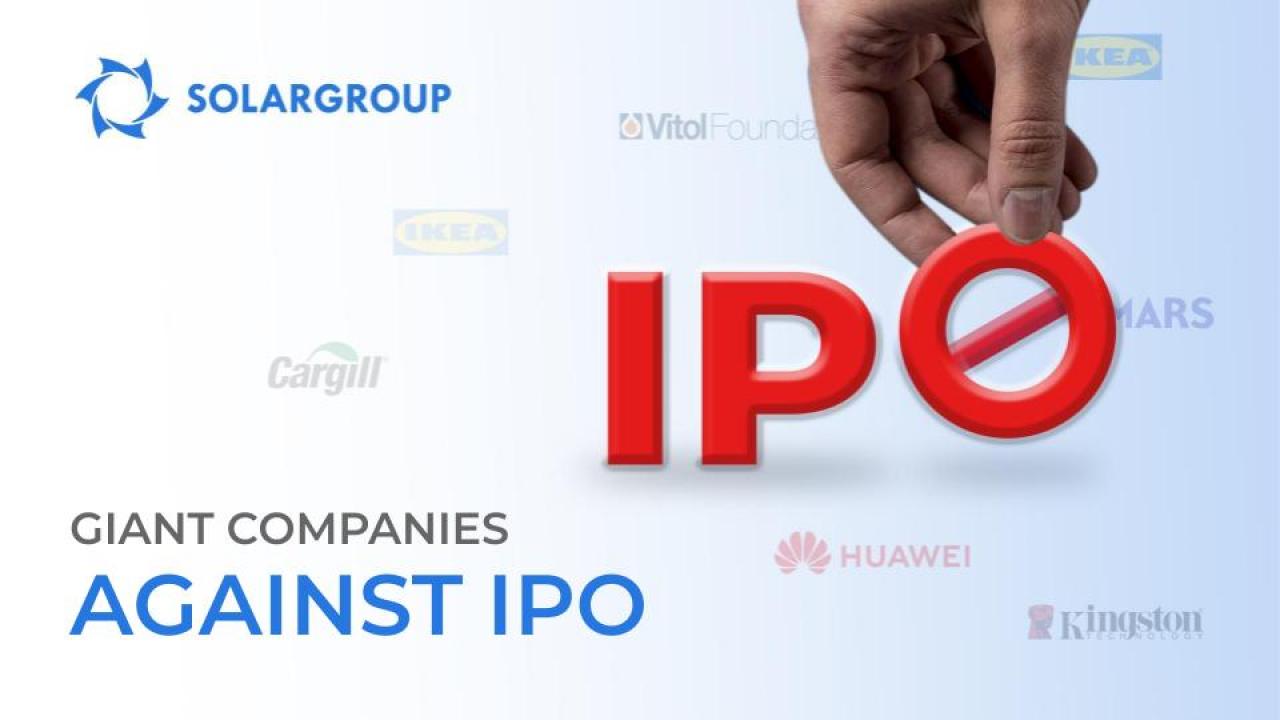
Against IPOs: Why don't Mars and other corporations want to issue shares?
Today we will talk about well-known multinational corporations whose shares are not sold on the stock exchange. Their brands have long been synonymous with success and have won the global market, but the owners of these businesses prefer not to advertise their achievements, and therefore do not conduct an IPO (initial public offering).
This position allows corporations to avoid disclosing their key financial statements, so these companies can keep secret the amount of profit, proceeds and debts.
We have compiled a list of six large businesses that do not want to make their financial information public:
1. Mars has been on the market since 1911. The business was founded by F. C. Mars and it's still a family-owned company. The corporation has created a lot of brands whose products have become supermarket hits: Bounty, Snickers, Milky Way, Twix, and Juicy Fruit are the sweets well-known to everyone. The global factory has 20 enterprises in the USA alone! In 2018, the revenue of Mars was $35 billion. Corporate ethics prescribes the employees not to communicate with journalists, and privacy is a priority in their work.
2. A private company from the Netherlands Vitol Group is engaged in the sale and refining of energy resources. We can say that Vitol is an intermediary between oil corporations and millions of buyers in the world. According to the American business magazine Fortune, at least 200 Vitol tankers with a variety of products sail in the sea every minute. Vitol's turnover in 2018 amounted to $231 billion, and the company keeps its profit information secret.
3. IKEA began its history in 1943 with the sale of catalogue goods. Today, the business is more than just successful: the company has 208 thousand employees and 422 furniture stores around the world. The owner of IKEA was repeatedly offered to make the company's financial information public and attract investors to ensure growth, but this was always followed by a refusal. Ingvar Kamprad believed that the company should not become dependent from any financial institutions.
4. Cargill has become the largest private company in the United States in the course of its 150-year history. The main line of business is the sale of grain, and today it has been supplemented by the trade in metals, logistics, meat production and more. The owners - the Cargill-MacMillan clan - have been repeatedly criticized for causing environmental damage and violating human rights at their enterprises.
5. Huawei is China's largest private business and the 15th largest in terms of the revenue for 2019 among state-owned companies. The company was founded in 1987 by a former military man. Back then, the company was engaged in resale of telephone equipment; the initial capital was minimal to get the company registered: about $5 thousand. In the late 1990s, Huawei entered the markets of other countries. Today, the company is a multinational giant in the field of consumer electronics and communications technology. Its management, just like in the first years of its existence, do not plan to launch the company on the stock exchange, because it will interfere with their long-term business plans.
6. Kingston Technology is one of the leading manufacturers of memory cards. The market share of its main rival ADATA Technology Co. is only 4.8 %, while Kingston Technology's market share amounts to 68.5 %. The company has four production enterprises: two in China, one in the United States and one in Taiwan. The founders of the business, the engineers John Tu and David Sun, believe that integrity towards employees is the formula of success.
What do you think the owners' desire not to disclose the financial statements of their enterprises indicates?

